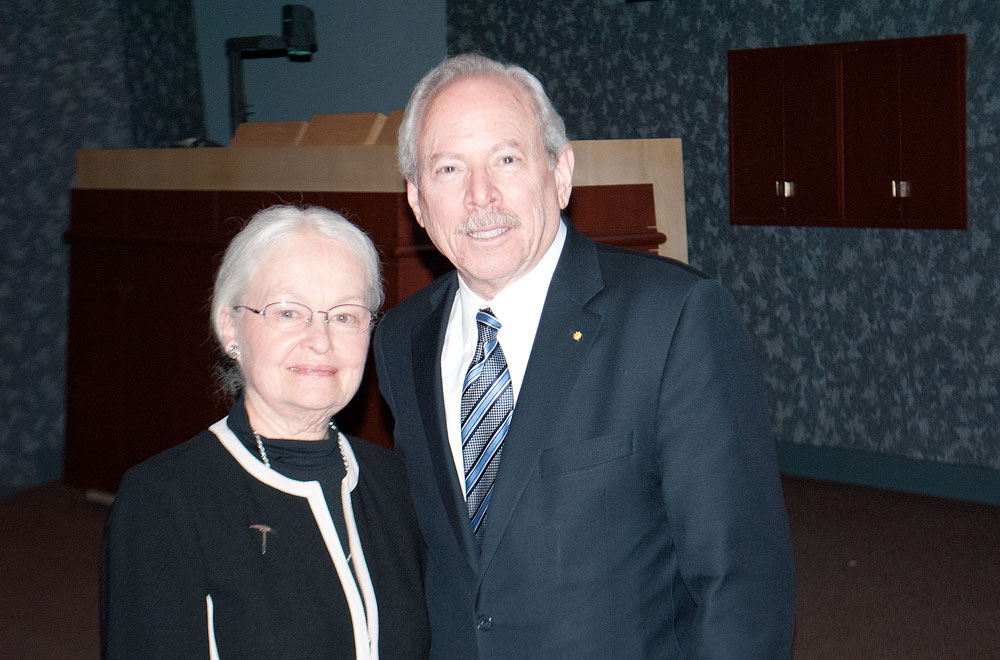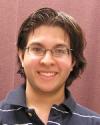EL PASO – The rapid evolution of technology and the changing nature of science has emphasized the conflicts between the goals of science and the perceptions and prejudices of the public.
“We are living in the best of scientific times,” Dr. Alan Leshner, chief executive officer of American Association for the Advancement of Science (AAAS) told an audience recently at the University of Texas at El Paso.
Leshner said that despite the incredible technological development of modern times, the public has become less accepting of it. “So the science is great but there is a fair amount of tension that is brewing and that’s what I’m most concerned about,” he said.

UTEP President, Dr. Diana Natalicio, welcomes Dr. Dr. Alan Leshner, chief executive officer of American Association for the Advancement of Science. (Oscar Garza/Borderzine.com)
“Advances in science are coming at a fantastic pace,” he said. Science is going on all over the world, and technology to explore science is developing rapidly, was one of his main points. “The availability of technology has enabled us to ask wholly different questions that we couldn’t ask before,” said Leshner.
Leshner used the example of how science and knowledge are affecting different parts of the world. A country like Rwanda, which has no natural resources, has decided to instead build upon its use of knowledge and pure thinking, he said.
He said that one of the main reasons why the public and the scientific community can’t seem to agree on controversial topics such as stem cell research is that most scientists are not good communicators.
He cited several ways to improve the necessary dialogue, such as developing global standards, clarifying scientific ethics, defining intellectual property and explaining publication/access issues. Science is becoming more global in character, was a point that he stressed and said people needed to focus on that.
Funding is the main external factor, affecting employment in the scientific field, he said. “Well, all you need to see is that it’s gotten bad. We at AAAS have an array of programs to help people guide them through their careers,” said Leshner.
According to Leshner’s presentation people still generally support science and technology. “Most people support scientists because it does good for them,” he said. According to Leshner science needs to educate the public so they understand controversial subjects like embryonic stem cell research, which has created a lot of conflict.
“People understand the issues, but they don’t like it. They don’t want to accept it.” When this rift between the public and the scientific community arises there is only one question to ask, he said. “So what can we do? Engage the public. We at AAAS have a program on how to engage scientists to communicate with the public.”
The more radical scientific concepts make the general public uncomfortable, he said. “And they’re allowed to be uncomfortable. I think the issue has to be what is meaningful to them, not to us,” he said.
“The science-society relationship needs constant attention”, said Leshner while showing an image of a balance scale depicting science on one side and society on the other in “perfect balance.”


